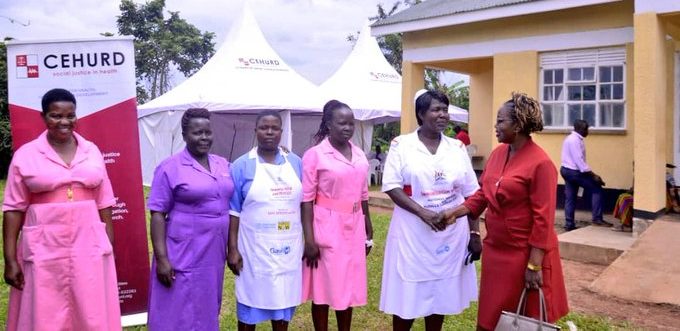Health and the law is an emerging area of legal practice beset with a visible lack of national jurisprudence. The relationship between the law and health starts from the definition of the two terms; The World Health Organization (WHO) defines ‘health’ as a ‘state of complete physical, mental, and social well-being and not merely the absence of disease and infirmity’ and the law is defined as ‘the system of rules which a particular country or community recognizes as regulating the actions of its members and which it may enforce by the imposition of penalties’. The marriage of the two gives us Health and the law which refers to those enforceable laws established by government and applied to people for the purpose of building a healthy society.
In Uganda, health and the law did not exist as an independent area of practice until recently. It was largely embedded within the law of tort under medical negligence, constitutional law under quarantines for reasons of public health and safety and in criminal law under imposing sanctions on health workers for committing negligent acts. Health and the law has slowly garnered force in India and South Africa as seen in the 1998 case of Soobramoney v the Minister of Health (KwaZulu Natal), the Constitutional Court said that the government was justified in restricting access to kidney dialysis, because of the high cost of this type of care, and the need for the government to have reasonable plans for spending its health care resources.
In the 2002 case of Minister of Health v Treatment Action Campaign, the Court stated that the government was wrong to restrict access to the antiretroviral medicine, nevirapine, that is effective in reducing the risk of mother-to-child HIV transmission and ordered the government to make the medicine available to pregnant women living with HIV.
The principal legislation informing health and the law in Uganda is found in the Constitution of the Republic of Uganda, 1995 which creates an obligation on the State to ensure that all Ugandans enjoy opportunities and access to health services and ensure provision of medical services to the population. It can also be found in acts of Parliament which include the Public Health Act Cap 281, Insurance Act 6 of 2017, the Medical and Dental Practitioners Act Cap 272, the Nurses and Midwives Act Cap 274, the Allied Health Professionals Act Cap 268, Mental Treatment Act Cap 279, Venereal Diseases Act Cap 284, National Medical Stores Act Cap 207 and National Drug Policy and Authority Act Cap 206.
Health and the law has also seen a slow but sure growth in the courts of law where the Courts have set precedent in several cases such as the cases of Joyce Nakacwa vs. Attorney General Constitutional Petition No. 2 of 2001 which was unfortunately not heard on its merits, there is also Sarah Watsemba Goseltine and Baby David Goseltine vs. Attorney General High Court Civil Suit No. 675 of 2006 which discusses medical negligence. Medical negligence contributes to death, damage, injury of patients.
Although the legal framework provides for redress against medical negligence in form of civil and criminal law, these laws are inadequate because it is hard for a victim to prove medical negligence against a medical professional let alone extract payment of damages from the government.
The case of CEHURD vs AG Constitutional Petition No. 16 of 2011 challenges inter alia the non-provision of basic indispensable maternal health commodities in government health facilities but the Petition was struck out for raising political questions but this decision was overturned by the Supreme Court in Constitutional Appeal No.1 of 2013 and the petition was forwarded back to the Constitutional Court to be heard on its merits. On 30th September, 2019, the Constitutional Court heard arguments for and against this matter which was adjourned for a ruling which will be delivered on notice. There is also a growing connection between medical negligence and the right to health as seen in the cases of CEHURD & 3 ORS vs Nakaseke District Local Administration Civil Suit No. 111 of 2011 and CEHURD & 2 ORS vs Attorney General Civil Suit No. 212 of 2013 which discuss the right to health and medical negligence.
Health and the law has now expanded with the growing subscription to medical insurance and the increase of private actors in the health sector and some of the issues presented before Court now include; rights of persons with mental disabilities, tobacco control, sexual reproductive health, access to medicines, access to health information, quality of health care in private health facilities, businesses in the health sector among others.
There are also issues of professional misconduct/unethical behavior by health professionals, medical negligence, unhealthy and unsafe working environment in health facilities which jeopardize patient safety. The non-appreciation of the distinction between rights violations, ethics and medical negligence have also been prominent.
AJALO RUTH
ajalo@cehurd.org
Centre for Health, Human Rights and Development (CEHURD)

